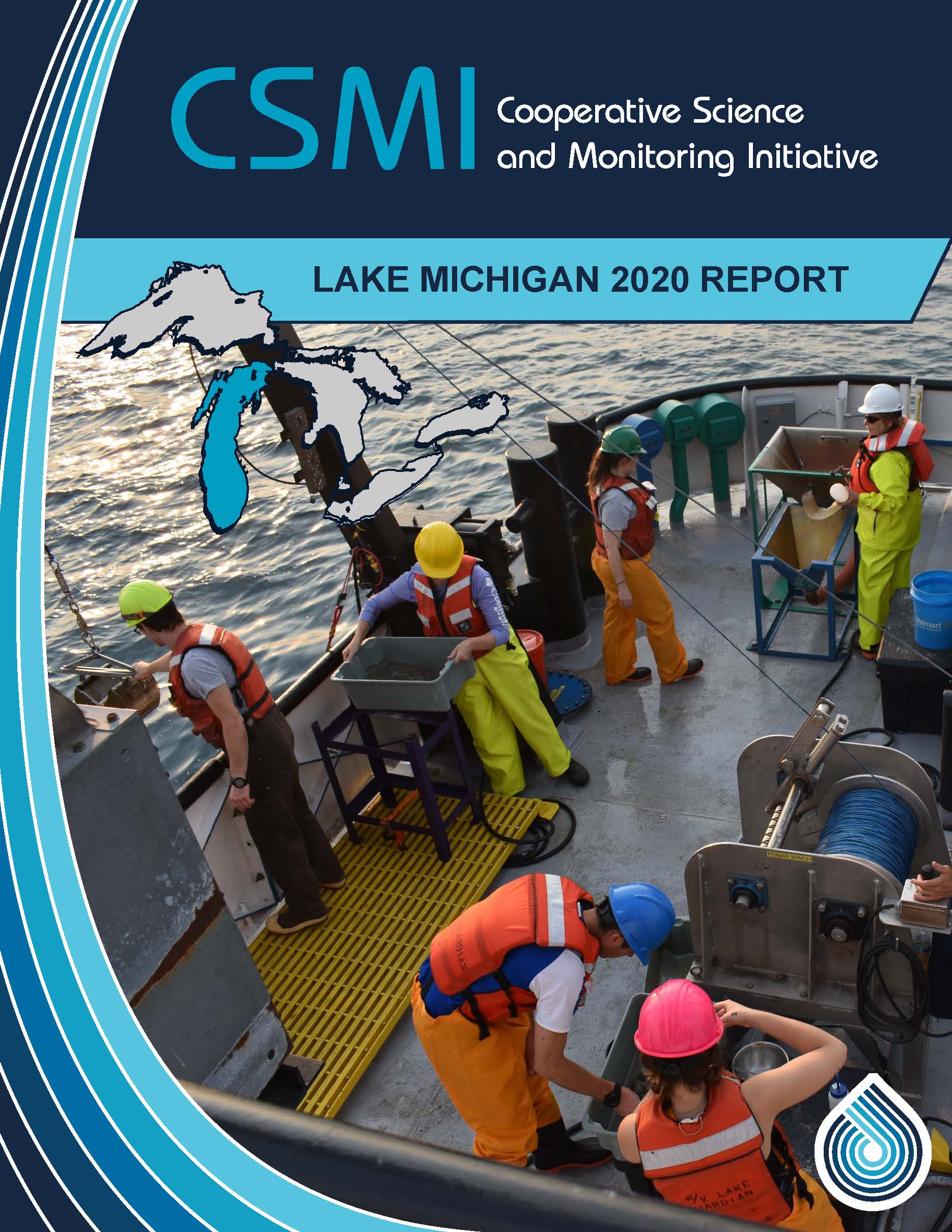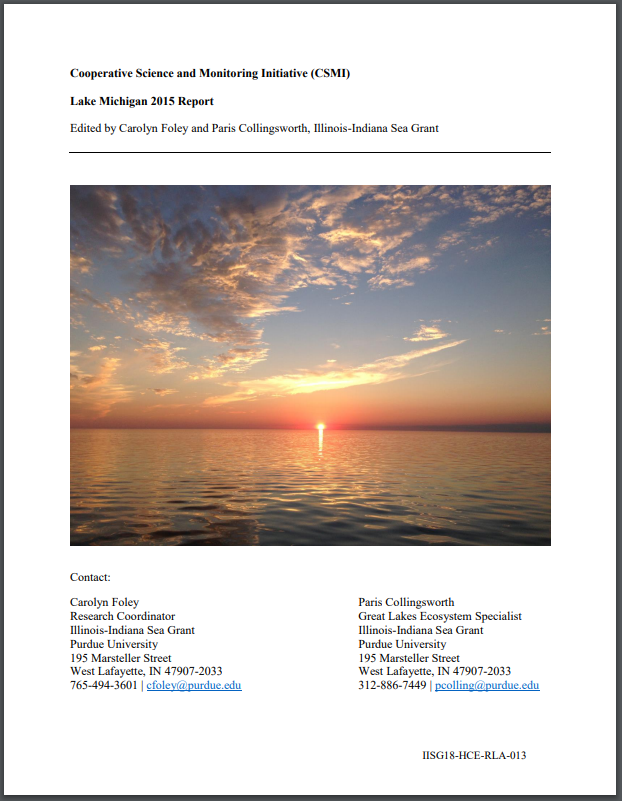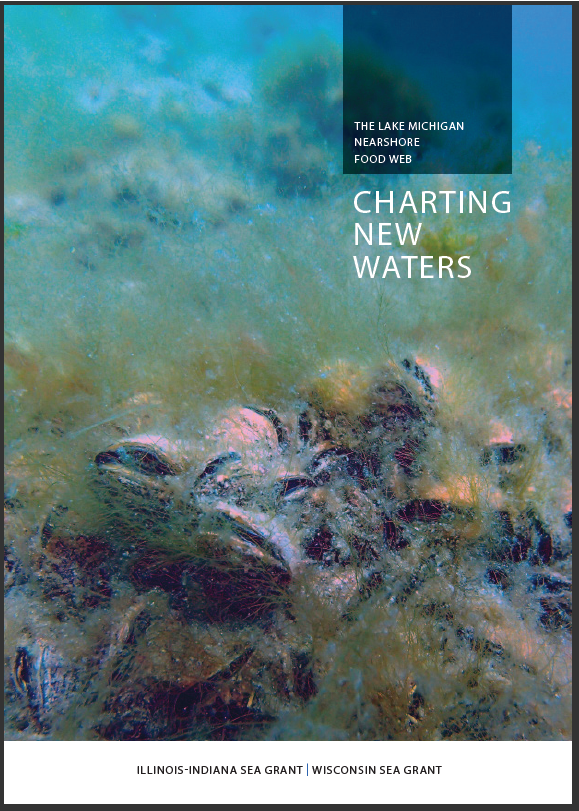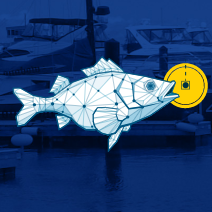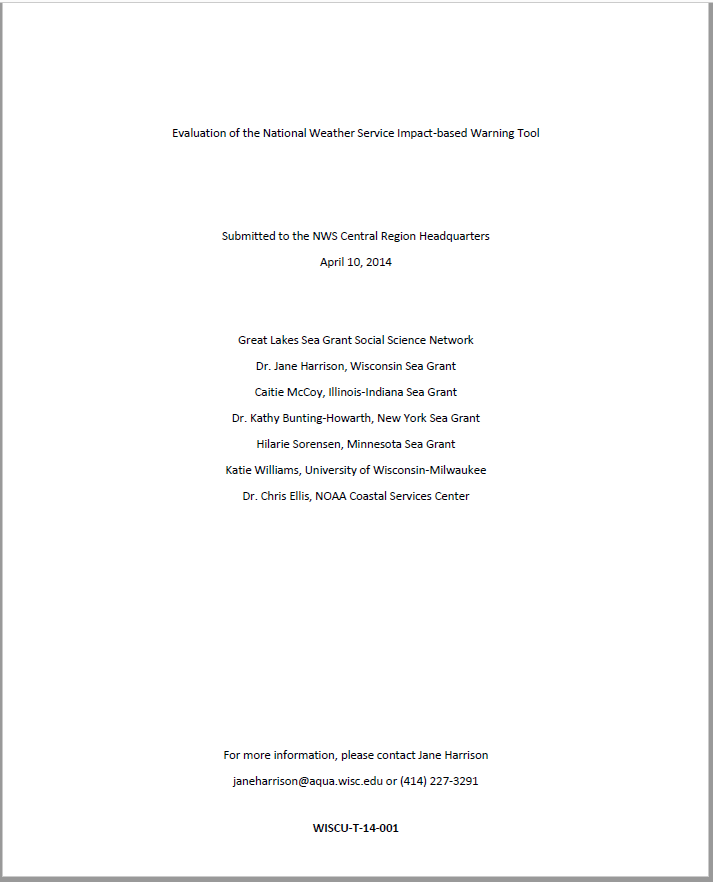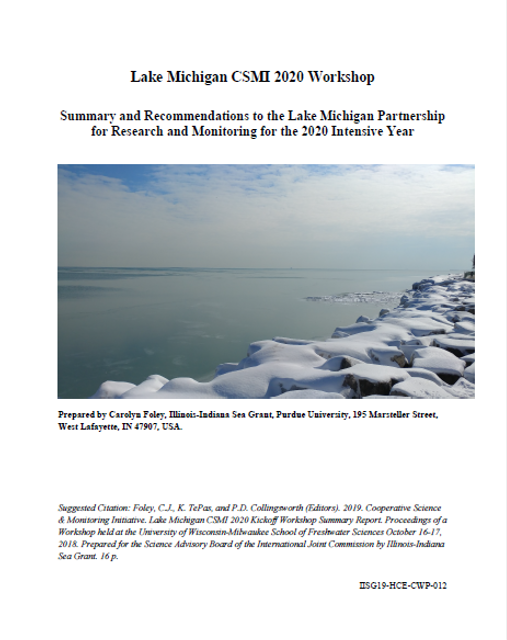
File Size: 618.04 KB
On October 16 and 17, 2018, nearly 60 scientists and managers met at a workshop in Milwaukee, WI to discuss research needs for Lake Michigan. The workshop, sponsored by the International Joint Commission through its Science Advisory Board Research Coordination Committee and organized by Illinois-Indiana Sea Grant, was part of the Cooperative Science Monitoring Initiative (CSMI). The main purpose of the meeting was to kick off discussions about research priorities to be considered during the 2020 CSMI intensive field year on Lake Michigan. This document summarizes the meeting proceedings.

